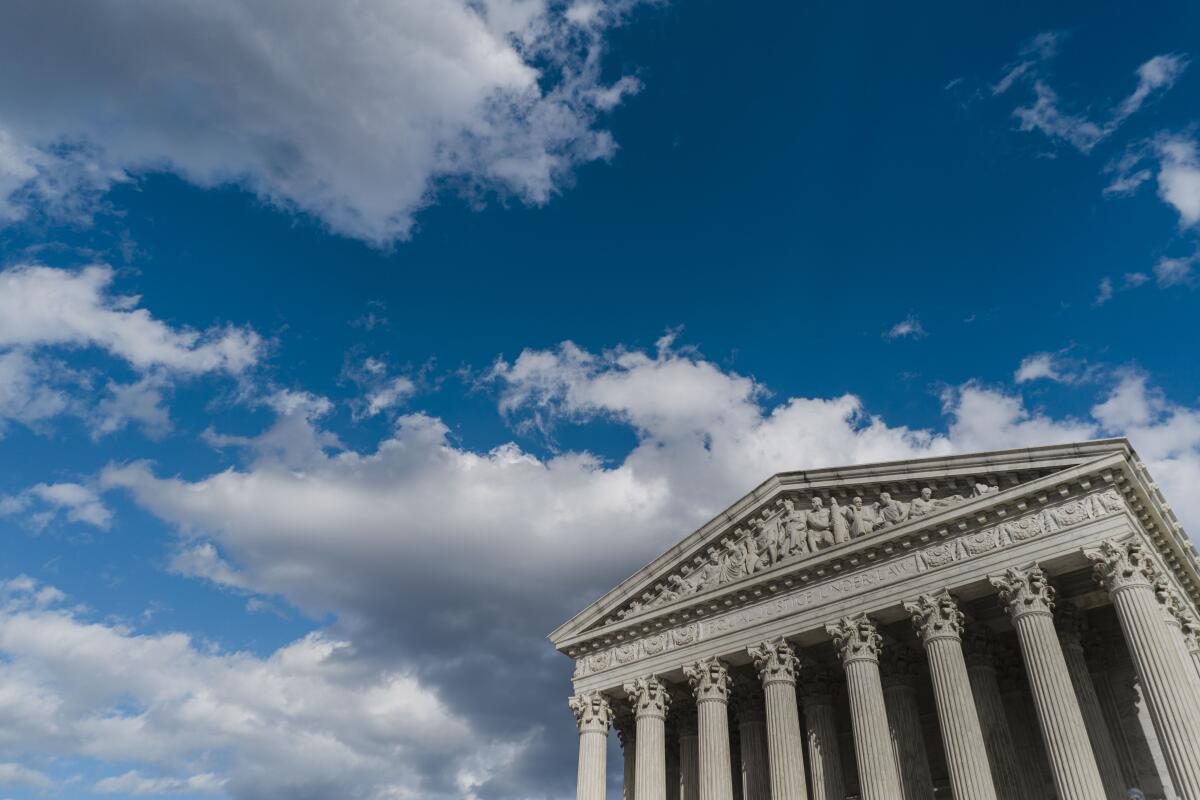Supreme Court may extend free-speech rights to online stalkers

- Share via
WASHINGTON — The Supreme Court heard a free-speech case on Wednesday and sounded ready to make it much harder to prosecute alleged online stalkers who repeatedly send unwanted and harassing messages that leave the recipient upset and frightened.
At issue is whether prosecutors must prove the sender intended to make true threats.
Coles Whalen, a Colorado musician, said she quit performing in public after receiving menacing messages over two years from a man she had never met.
“The thousands of unstable messages sent to me were life-threatening and life-altering,” she said. “I was terrified that I was being followed and could be hurt at any moment; I had no choice but to step back from my dream, a music career that I had worked very hard to build.”
Some messages invited her to “come out for coffee.” Others referred to seeing her in public. A few sounded angry: “Die. Don’t need you.”
She told friends the messages were “weird” and “creepy,” and she repeatedly tried to block them on Facebook. But the messages continued, and she complained to police.
Billy Ray Counterman was prosecuted for stalking Whalen and causing her emotional distress. His defense attorneys said he was “delusional” and suffered from mental illness, but did not intend to threaten her.
He was convicted by a jury and sentenced to 4½ years in prison, in part because he had a previous conviction for sending threats online.
The Supreme Court agreed to hear his appeal, and most of the justices — conservatives and liberal — sounded sympathetic to his 1st Amendment claim.
Washington, D.C., lawyer John P. Elwood, representing Counterman, urged the court to rule that prosecutors must prove the stalking defendant had a “specific intent” to threaten the recipient of his messages.
Elwood argued that the 1st Amendment has been understood to protect the freedom of speech, except when a person makes a “true threat” of violence. In this case, he said, the government was not required to show Counterman had intended to threaten Whalen.
“Criminalizing misunderstanding is especially dangerous in an age when so much communication occurs on social media,” he said.
Colorado Atty. Gen. Phil Weiser argued that the danger flows in the other direction, saying cyberstalking can do “life-changing harm.”
“Requiring specific intent in cases of threatening stalkers would immunize those who are untethered from reality,” Weiser added. “It would also allow devious stalkers to escape accountability by insisting that they meant nothing by their harmful statements.”
In Counterman’s case, Whalen “didn’t know what he looked like,” he said. “Do you have to wait until the person engages in violence?”
The lawyers differed on the potential effects of a ruling that would require proof of a sender’s intent. Elwood said it would not affect many cases; Weiser said it would make it more difficult to prosecute such cases.
The court is to issue a decision in Counterman vs. Colorado by late June.
More to Read
Get the L.A. Times Politics newsletter
Deeply reported insights into legislation, politics and policy from Sacramento, Washington and beyond. In your inbox twice per week.
You may occasionally receive promotional content from the Los Angeles Times.










